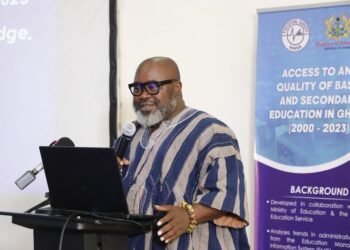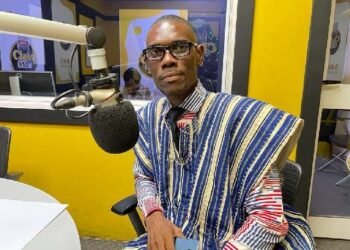The Presiding Judge of the SALL parliamentary election petition at the Ho High Court, His Lordship Justice Owoahene Acheampong has expressed his profound displeasure over the consistent absence of legal representatives for the Electoral Commission (EC) during court proceedings.
The frustration was notably highlighted during the hearing of an application by the Petitioners’ lawyer, Mr Philip Jimanor, seeking permission to file amended replies to answers submitted by both the 1st Respondent, the Electoral Commission, and the 2nd Respondent, Honorable John Peter Amewu, the Member of Parliament for Hohoe Constituency.
Justice Acheampong lamenting over the unfortunate development recalled a prior instance where he had similarly criticized the absence of the lawyers of the Electoral Commission.
According to the learned judge, it was perplexing and unacceptable that neither the current Electoral Commission lawyer, Justin Amenuvor, nor any representative from the Commission, a significant state institution in the conduct of public elections in the country failed to appear in court.
Application for Petitioners to File Amended Replies
Again, following Mr Benedict Kofitse, the legal representative of the 2nd respondent, Honorable John Peter Amewu in the ongoing trial decision not to oppose the Petitioners’ application, Justice Acheampong granted the application for the Petitioners to file their amended replies.
He adjourned the case to Thursday, June 20, 2024, with June 20th and 21st previously earmarked for the trial.
Given the above, the Petitioners filed the Amended Replies as directed by the presiding judge, His Lordship Justice Owoahene Acheampong.
It also remains a point of concern that the Electoral Commission has yet to submit any witness statements per the correspondence of the court, a critical component of the trial proceedings.
However, the Electoral Commission has complied with the court’s order dated June 3, 2024, by submitting a list of registered voters in the SALL (Santrokofi, Akpafu, Likpe, and Lolobi) traditional areas as of the December 7, 2020, Parliamentary election.
The absence of the EC’s legal representation continues to draw scrutiny and raises questions about the Commission’s commitment to the legal process and the administration of justice in this significant electoral petition.
Meanwhile, in an earlier call to action, Professor Stephen Kweku Asare, Democracy and Development Fellow at the Ghana Centre for Democratic Development (CDD-Ghana) strongly asserted that the EC’s explanation for the disenfranchisement of SALL residents in the 2020 general elections is deeply flawed and indicative of a broader failure within the Commission to uphold its responsibilities.
He vehemently denounced the Electoral Commission’s claims that the creation of the Guan District occurred too late for it to establish a constituency for the people of Santrokofi, Akpafu, Likpe, and Lolobi in time for the elections.
He also refuted the EC’s position that the situation left it with no choice but to direct Santrokofi, Akpafu, Likpe residents to refrain from voting for a Member of Parliament during the December 7 2020 general elections.
Professor Asare, in denouncing the EC’s argument underscored that the EC’s stance effectively allows the President to manipulate the electoral landscape by timing district creations in a way that could hamper the EC’s ability to establish necessary constituencies.
This scenario, he argued undermines the independence of the Electoral Commission and jeopardizes the primacy of representation, a cornerstone of democratic governance.
READ ALSO: NDC to Launch Campaign for 2024 Elections Next Month



















